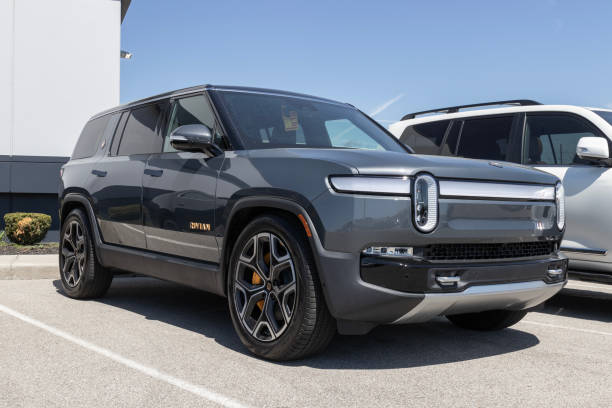In recent years, the push towards sustainable urban transport has gained considerable momentum, with electric vehicles leading the charge. Rivian’s new electric vans are at the forefront of this revolution, reshaping how urban deliveries are conducted. According to a Bloomberg Green report, the global market for electric vans is expected to grow exponentially, reaching an estimated $30 billion by 2030. This article will explore how Rivian is transforming urban logistics, the technology behind their electric vans, and the broader impact on sustainable cities.
The Rise of Electric Vans in Urban Deliveries
A New Era for Last-Mile Deliveries
Urban deliveries, often referred to as last-mile logistics, are critical to modern commerce. However, they come with challenges such as traffic congestion and pollution. Enter Rivian’s electric vans, designed to meet the specific demands of city deliveries while minimizing environmental impact.
- Zero Emissions: Rivian’s electric vans produce no tailpipe emissions, significantly reducing urban air pollution.
- Quiet Operation: The silence of electric motors helps decrease noise pollution, enhancing urban living conditions.
- Agility and Range: With a compact design and a range of up to 200 miles on a single charge, Rivian vans are perfect for navigating city streets.
Cutting-Edge Technology and Design
Rivian’s vans are not just about sustainability; they are technological marvels. The company has incorporated advanced features to optimize delivery efficiency:
- Smart Fleet Management: Using AI and IoT technology, these vans offer real-time tracking and route optimization, reducing delivery times and energy consumption.
- Driver Assistance Systems: Features like adaptive cruise control and lane-keeping assist enhance safety and reduce driver fatigue.
- Space Optimization: With modular interior design, these vans can be customized to carry a variety of goods, from groceries to electronics.
Benefits of Rivian’s Electric Vans for Businesses
Cost Efficiency and Maintenance
Switching to electric vans can significantly cut operating costs for businesses:
- Lower Fuel Costs: Electricity is cheaper than diesel or gasoline, resulting in substantial fuel savings.
- Minimal Maintenance: Electric motors have fewer moving parts, reducing maintenance needs and costs.
- Incentives and Rebates: Many governments offer financial incentives for adopting electric vehicles, further lowering acquisition costs.
Enhancing Brand Image and Customer Loyalty
Consumers increasingly prefer brands that prioritize sustainability. By adopting Rivian’s electric vans, businesses can:
- Showcase their commitment to the environment.
- Attract eco-conscious customers.
- Gain a competitive edge in the market.
Practical Guide to Adopting Rivian Vans
How to Charge Rivian Electric Vans
Charging infrastructure is a crucial component of electric vehicle adoption. Rivian has partnered with various charging networks to ensure seamless operations:
- Home Charging: Businesses can install charging stations at their facilities, ensuring vans are ready for daily operations.
- Public Charging Networks: Rivian vans are compatible with numerous public charging stations across cities, providing flexibility for longer routes.
- Fast Charging Options: For urgent needs, fast chargers can replenish the battery to 80% in about 30 minutes.
Where to Buy Rivian Electric Vans
Rivian vans are available directly from the manufacturer. Interested businesses can:
- Visit Rivian’s official website to explore options and configurations.
- Contact Rivian’s sales team for personalized offers and leasing options.
- Schedule test drives to experience the vans’ capabilities firsthand.
The Future of Urban Deliveries
A Sustainable Urban Ecosystem
Rivian’s electric vans are part of a broader trend towards sustainable urban ecosystems. As cities strive to become greener and more livable, electric vehicles will play a pivotal role:
- Integration with Public Transport: Electric vans can complement public transit systems, providing first and last-mile connectivity.
- Support for Green Policies: Cities worldwide are implementing low-emission zones, where electric vans will have unrestricted access.
The Role of Policy and Innovation
Government policies and innovations in battery technology are critical to the widespread adoption of electric vans:
- Battery Advancements: According to a report from Battery University, new battery technologies promise longer range and faster charging.
- Policy Support: Regulatory frameworks supporting zero-emission vehicles will drive adoption and infrastructure development.
Conclusion
Rivian’s new electric vans are not just vehicles; they are a vision of the future of urban deliveries. By reducing emissions, cutting costs, and enhancing brand image, these vans offer businesses a compelling case for change. As cities increasingly focus on sustainability, Rivian’s innovations are likely to become a staple of urban transport solutions.
Are you ready to join the electric revolution in urban logistics? Share your thoughts in the comments below or explore how Rivian’s electric vans could transform your business operations. Together, we can drive towards a cleaner, more sustainable future for our cities.

